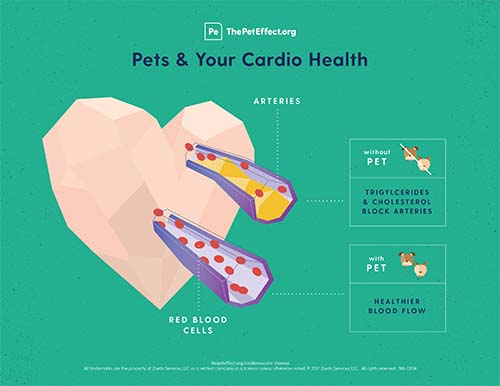Washington, D.C. (January 16, 2019) — The Human Animal Bond Research Institute (HABRI) today announced funding for five new research projects focused on the positive effects of human-animal interaction on human health. These new studies will examine the influence of pet ownership, pet caretaking or animal-assisted therapy on a wide array of health conditions among a varied group of populations, including older adults, children with pediatric cancer, and suicidal adolescents.
“With human-animal interaction research more clearly documenting the impact of the human-animal bond on mental and physical health, it is important to support research on how companion animals can benefit vulnerable and at-risk populations,” said Bob Vetere, HABRI President and Chair of the Board of Trustees. “This new group of research projects is particularly exciting as two of the studies will add to existing HABRI research results on the benefits of dog walking for physical activity and the impact of therapy animal visitation on the quality of life of pediatric cancer patients. Two studies will look at mental health and preventing suicide among teenagers, a population that is often overlooked.”
Out of a total of more than 40 proposals received, HABRI has funded the following five research projects:
- Emmanuel Stamatakis, PhD (University of Sydney): Increasing Dog-walking in the Community: What is the Potential of Wearable Dog Trackers? The PAWalks Trial
- Megan MacDonald, PhD and Monique Udell, PhD (Oregon State University): Joint Physical and Social Well-being for Adolescents and Their Family Dog
- Mary Jo Gilmer, PhD, RN-BC, FAAN (Vanderbilt University): Pilot Study of the Effects of Animal-Assisted Interactions (AAI) on Quality of Life in Children with Life-Threatening Conditions (LTC) and their Parents
- Sandy Branson, PhD, MSN, RN (Cizik School of Nursing at UTHealth): Pet Caretaking and Risk of Cognitive Impairment and Dementia in Older U.S. Adults Participating in a Nationwide Longitudinal Probability Cohort Study
- Alexander Muela, PhD (University of Basque Country): Animal-Assisted Psychotherapy for Youth in Residential Care: Preventing Suicide
“As HABRI enters its sixth grant funding cycle, we look forward to supporting these important projects, which will help expand our knowledge of the many ways companion animals are essential to human health and wellness,” added Vetere.
Since HABRI’s founding in 2010, HABRI has funded 26 competitive research projects from institutions across the globe, and has supported the creation of the world’s most comprehensive online library of human-animal interaction research, bringing its research funding to more than $2.75 million.
The Human Animal Bond Research Institute (HABRI) maintains the world’s largest online library of human-animal bond research and information; funds innovative research projects to scientifically document the health benefits of companion animals; and informs the public about human-animal bond research and the beneficial role of companion animals in society. For more information about HABRI, visit www.habri.org.
###
Contact
Jamie Baxter
jamie@theimpetusagency.com
775.322.4022
###





